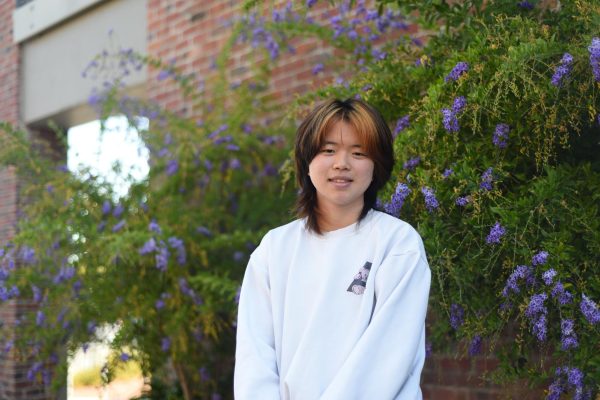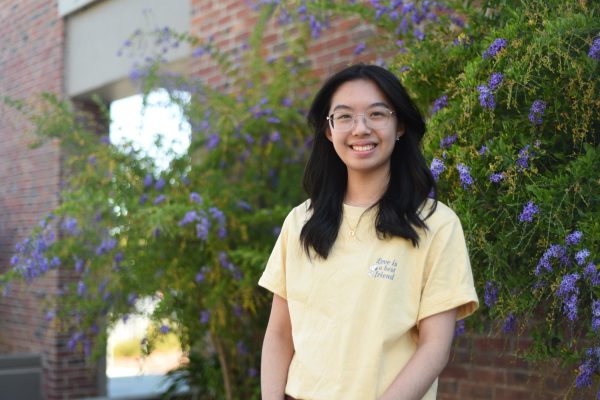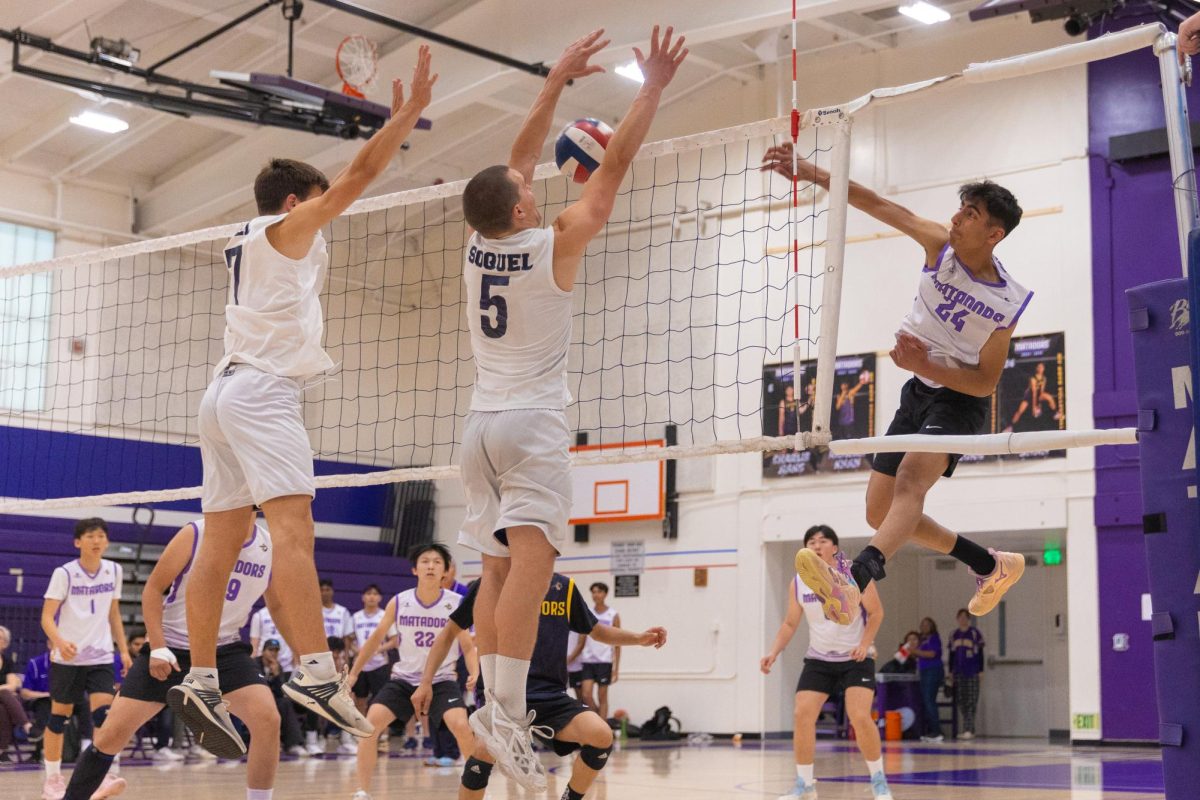AS: Hi, everyone. My name is Amberly Sun.
ML: And I’m Melody Lin.
AS: Welcome to Episode 32 of Time Out. In each episode, we dive into the unique journeys of MV athletes. In this episode, we are joined by junior Ozzy Christian, who shares his journey in horseback riding. So, can you tell us how long you’ve been horseback riding?
OC: I’ve been riding for around a decade at this point.
AS: And how did you get into this sport?
OC: One of my friends was kind of interested in a horseback riding camp, and I went with her, and I really liked it, so I kept going, and it wasn’t for her, so I just stuck it since then.
ML: What are some aspects that drew you into this sport?
OC: It’s really unique. I’ve never done a sport like it. There’s people that can ride horses until they’re like 70 or 80 years old and still even compete at some levels. It’s not like I have to retire early. So that’s something that I like about it.
AS: Is there anything else that makes horseback riding unique to you?
OC: Yeah, definitely. The main thing is that you have to work with a partner that’s an entirely different species, and they can’t speak the same language as you, so you have to really have a connection with them to do well and succeed in this sport.
AS: Have you had any challenges with that?
OC: In terms of that, yes, because it’s kind of hard to be able to stick with the same horse every single time you’re riding a horse, so you kind of have to switch between how you communicate depending on the horse that you’re riding. So it can be a little bit difficult to figure out how to communicate with the specific horse until you actually do a lot with them.
AS: Do you have any specific examples of how you would communicate with a horse?
OC: How you’re sitting if you’re trying to ask them to do something. They can feel everything that you’re doing. So if you want them to go faster, you can have a more energized way of sitting, if that makes sense. And some horses respond to vocal cues, some of them don’t, and you just have to use your legs and steering and that kind of thing to get them to respond. So it’s different depending on each horse.
ML: How have you been able to consistently engage in the sport?
OC: I have been doing lessons for a long time, and I also work at a horse ranch, so that definitely helps because I have to go there every week to work there anyways. Sometimes, if we finish early, we get to ride horses for fun. So, it’s easy for me to do that if I have to be there anyway.
ML: So, what do you think is the most challenging aspect of horseback riding?
OC: I think again, with the communicating, it can be hard to figure out different horses, and it’s just generally hard to figure out what the horse is trying to do. And sometimes they just won’t listen to you, and they’re doing something annoying, and you don’t know what they want, and there’s no way for them to tell you that other than misbehaving. So it’s just figuring out what your horse is trying to tell you, mainly.
ML: How do you usually respond to those challenges?
OC: A lot of patience. You have to be very patient with the horse. Definitely affirm when they do something correct, reward them when they do something correct, and then redirect them if they’re not doing the right thing. So, it’s just a lot of patience and repetition.
AS: So, how have you grown during your journey in this sport?
OC: I spent the first half of the decade I’ve been riding doing Western riding, which is what you would think of when you think of cowboys and that kind of thing. Recently, I’ve been doing more jumping and English riding, which is more proper, and I’m personally enjoying that a lot more. So I’ve learned different riding styles, definitely been able to get around to riding more advanced horses, and just switching between different types of horses.
ML: Have you had any particularly memorable experiences that you want to share?
OC: Probably trying cross-country for the first time. That was a very unique experience. I got to do cross country with an Olympian, which was awesome. And I had never tried cross country before. It was a little bit scary, but a lot of fun.
AS: Can you say the Olympian’s name and how you managed to get that opportunity?
OC: His name is Boyd Martin. I got that opportunity through my trainer. He came in to do a clinic in Davis, and I went to that with my trainer, and we just got to do some cross country.
AS: How did you feel in that moment?
OC: Very happy that I had that privilege and ability to be able to have that experience, and the horse that I was on was really exciting and fast, and it was a lot of fun.
ML: And do you see yourself doing horseback riding in the near future or it going somewhere further?
OC: I think I would definitely be doing this for a really long time because if you look at the Grand Prix or the Olympics, there’s going to be riders that are up to like 70 or even older that are still riding horses. Because it is a very versatile sport. You can definitely go a lot easier. You don’t have to be jumping five feet all the time and that kind of thing. So it’s definitely something that it’s not like I have to retire when I’m like, 30 or something like that. I can just stick with it for a long time.
AS: You mentioned watching the Olympics. Do you have any role models you look up to within horseback riding?
OC: Probably just since I was able to train with him, I would say Boyd Martin. He is the most patient and kind and understanding person, especially towards horses, that I’ve seen, because there’s some people I’ll be watching, like the Grand Prix or something like that, and they’ll get really, really upset when their horse doesn’t go over a jump. And I don’t like seeing how they interact with their horse when that happens. But Boyd Martin, he will pet his horse and then try it again, and I don’t know how he does it. I hope I can be like him and just get to that level of understanding with the horse.
ML: And what advice would you give to someone who wants to start horseback riding?
OC: It’s OK to switch trainers because there are a lot of people that will do practices that are really outdated, or things that are controversial, or things like that, and it’s OK to just look for the right trainer for you. And that kind of goes for any sport, I think. But especially with horseback riding, there’s going to be things that your trainer does or that you do, even that are controversial, and it’s always going to be that way. So just trying your best and trying to be a good person with horses is mainly the most important thing — just building a strong relationship with the horse that you’re riding is very important. It’s not just about, ‘Go, go, go.’ You have to sometimes pause and just pet your horse.
ML: Do you have anything else to add?
OC: Maybe one thing, it’s really hard to progress in this sport without being rich sometimes. I’ve struggled with that since the beginning. And, you know, not to make this like a sob story, but sometimes I’ll see other riders that can just lease these really talented horses. And it’s a little bit frustrating to see. I wish I could make that progress without having to spend $2,000 every day to ride a horse that can actually do the things that I want to do sometimes. So it’s just a hard industry to work in. That’s it.
AS: That’s it for episode 32 of Time Out! Thanks again for joining us. I’m Amberly Sun and
ML: I’m Melody Lin. We’ll see you next time for another episode of Time Out!
“A Promise to the Stars” by Z8phyR on Pixabay | Used with permission











